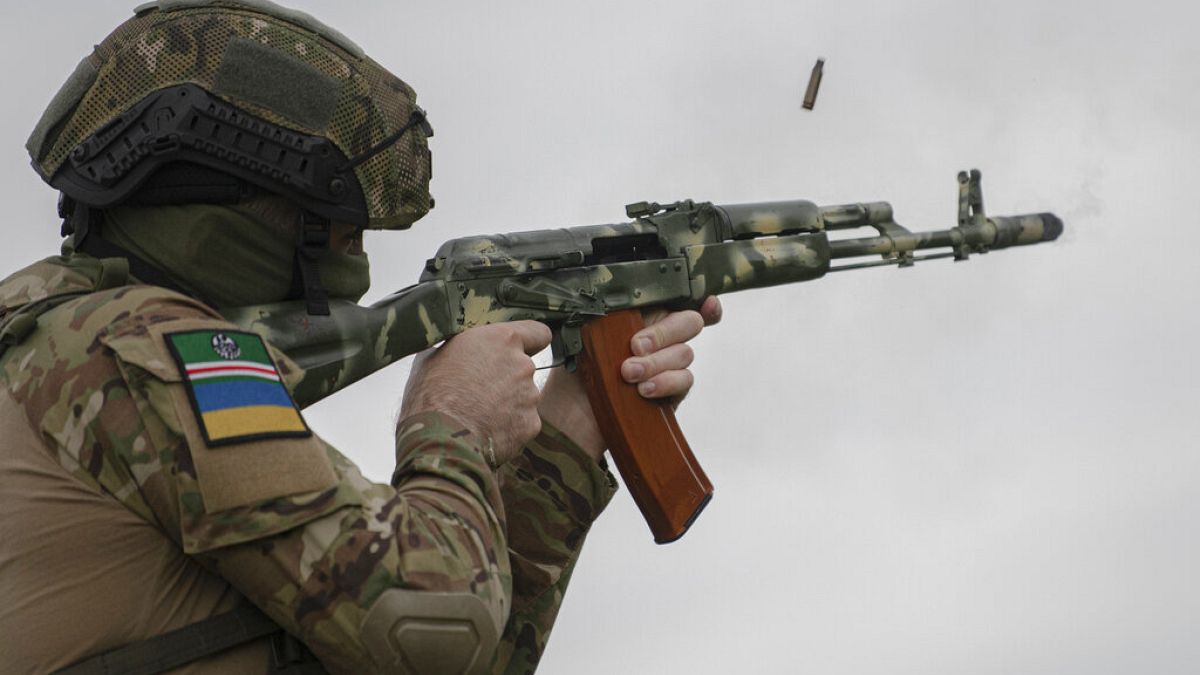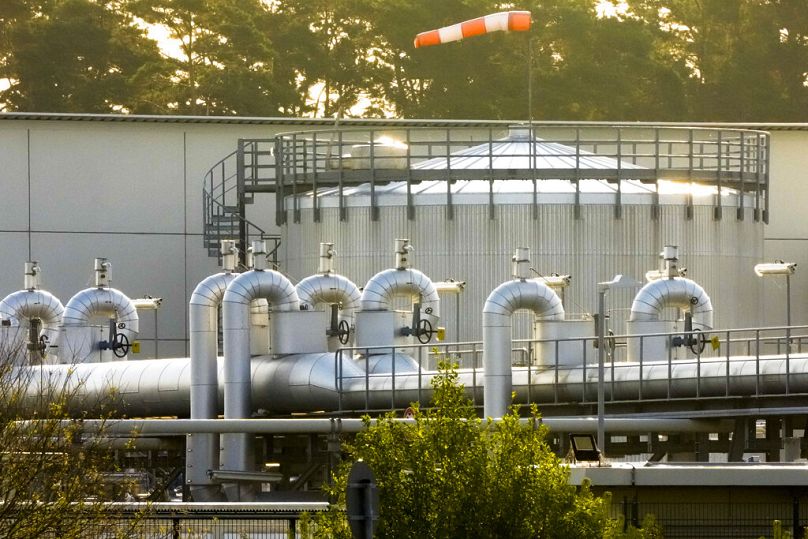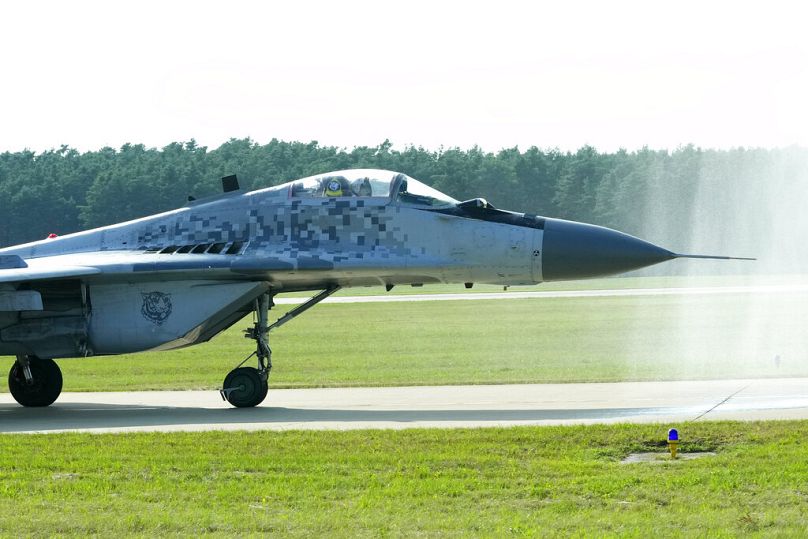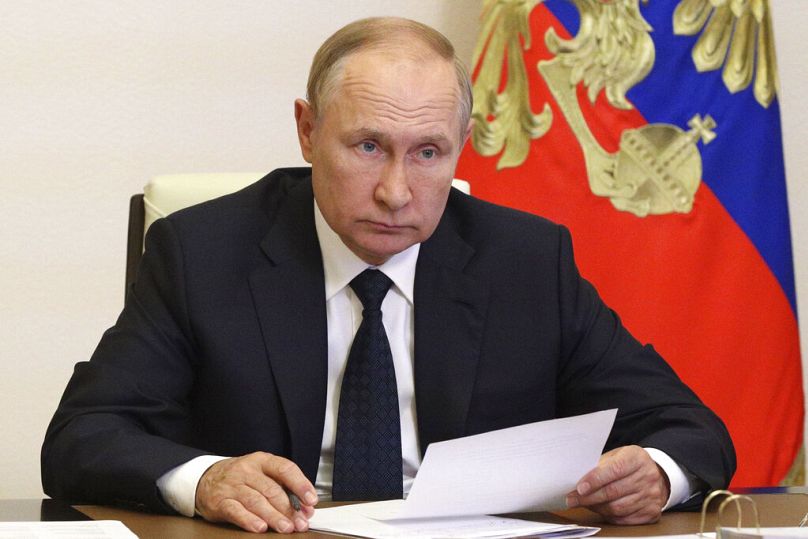Read our latest round-up of the key stories from Russia's war in Ukraine on Monday, 29 August.
1. Ukrainian army launches southern counter-offensive in a bid to liberate Kherson
Ukrainian forces have launched a counter-offensive in the south, aimed at pushing Russian troops back across the Dnipro river and retaking the occupied city of Kherson, local authorities announced on Monday.
"This is the announcement of what we have been waiting for since spring: it is the beginning of the end of the occupation of the Kherson region," local deputy and adviser to the regional governor Sergey Khlan told Ukrainian media outlets.
Russian troops had seized the southern city of 280,000 inhabitants at the beginning of the invasion of Ukraine.
Read more here:
2. At least two killed, 24 injured in Russian bombardment of Mykolaiv, say authorities
Russian shelling hit residential areas of the southern Ukrainian city of Mykolaiv on Monday, killing two people and destroying homes, city officials and witnesses said.
A Reuters correspondent at the scene said the strike hit a family home directly next to a school, killing one woman. Both houses on the property were left in ruins, with large craters gouged out of the ground in front.
Mayor Oleksandr Senkevych said on Telegram at least two people had been killed, and residential homes and educational institutions had been hit. The local governor, Vitaliy Kim, said on Telegram that 24 people had also been injured.
Police, military officials and Ukrainian war crimes prosecutors were at the site in a residential neighbourhood of Mykolaiv.
A main transportation hub, a shipbuilding centre and a port just off the Black Sea, Mykolaiv has suffered heavy Russian bombardments throughout the war.
3. Russia claims to have identified a second Ukrainian suspect in Dugina killing
Russia's FSB security service on Monday named another Ukrainian it said was part of a team that assassinated Darya Dugina, the daughter of a prominent Russian ultra-nationalist who believes Ukraine should be absorbed into a new Russian empire.
Dugina, who like her father Alexander Dugin was a vocal supporter of what Russia calls its "special military operation" in Ukraine, was killed in a car bombing outside Moscow on 20 August in what Russian President Vladimir Putin called a "vile, cruel crime".
Two days after the 29-year-old's murder, the FSB, Russia's main domestic intelligence agency, said it had solved the case, naming a Ukrainian woman it said had trailed Dugina for weeks, rented an apartment in her housing complex and planted the car bomb before fleeing Russia to Estonia - all with Kyiv's backing. read more
Ukraine, which says Russia is waging an imperial-style war of aggression against it, has denied involvement in the murder of Dugina, who has since been portrayed by pro-Kremlin politicians and by Russian state TV, where she often appeared as a pro-war commentator as a martyr.
Read more here:
4. International experts en route to nuclear power plant
A long-awaited visit by the International Atomic Energy Agency (IAEA) to the Zaporizhzhia power plant in Ukraine “is now on its way,” the UN body announced on Monday.
The IAEA has sought to gain access to the plant -- the biggest in Europe -- for months after it was captured by Russian forces in the early days of the Ukraine war.
Concerns over the nuclear power station have grown in recent weeks, with the site experiencing shelling and fires, which both Russia and Ukraine blame on one another.
These strikes have increased the urgency of a visit by international inspectors amid intensifying fears that the fighting could set off a nuclear leak.
Last week, shelling temporarily knocked the facility offline and fires at the site have previously damaged radiation sensors.
“The day has come,” IAEA director general Rafael GrossiGrossi Tweeted on Monday morning, adding that the UN agency's “Support and Assistance Mission ... is now on its way.”
“We must protect the safety and security of #Ukraine’s and Europe’s biggest nuclear facility,” he wrote. “Proud to lead this mission which will be in #ZNPP later this week.”
Grossi, who didn't provide a more precise timeline or give further details on the visit, posted a picture of himself with 13 other experts.
The IAEA tweeted that the mission will assess physical damage to the facility, “determine functionality of safety & security systems” and evaluate staff conditions, among other things.
Ukraine has alleged that Russia is essentially holding the plant hostage, storing weapons there and launching attacks from around it, while Moscow accuses Ukraine of recklessly firing on the facility, which has six nuclear reactors.
In August, UN chief Antonio Guterres called for military operations around Zaporizhzhia to halt immediately, describing them as "suicidal."
5. Russia and China to hold large-scale military drills in early September
Russia said Monday it would launch sweeping military drills in the country’s east that will involve forces from China — a show of increasingly close defence ties between Moscow and Beijing amid tensions with the West over the Kremlin’s action in Ukraine.
The Russian Defense Ministry said that the Vostok 2022 ("East 2022") exercise is to be held 1-7 September in various locations in Russia’s Far East and the Sea of Japan and involve more than 50,000 troops, and over 5,000 weapons units, including 140 aircraft and 60 warships.
The ministry released a video of Chinese troops arriving in Russia in preparation for the exercise.
The drills will be conducted at seven firing ranges in far eastern Russia and will engage troops from China, India, Laos, Mongolia, Nicaragua, Syria, and several ex-Soviet nations.
The ministry said that units of Russian Airborne troops, long-range bombers and military cargo planes would take part in the drills along with other forces.
While first announcing the exercise last month, the Russian military emphasised that it is part of planned combat training that is continuing despite Moscow’s military action in Ukraine. It has not disclosed the number of troops engaged in what the Kremlin calls the “special military operation” there.
Read more here:
6. Russia recruitment drive 'unlikely to improve combat power'
The British Ministry of Defence said that a new Kremlin-ordered drive to recruit more personnel to the Russian military "is unlikely to make substantive progress towards increasing Russia's combat power in Ukraine."
On 25 August, Vladimir Putin issued a new decree increasing the overall number of personnel in the Russian armed forces: raising it by nearly 140,000.
The decree also instructed the Russian government to provide the funding to make this increase happen.
It's unclear whether recruiters would try to make their quotas by signing up new volunteers - called 'contract' soldiers - or if they would simply increase their annual targets for the conscription draft.
There have been numerous reports that Russian military officials have been offering contracts to prisoners with a promise that they'll get out of jail if they join the army.
"In any case, under the legislation currently in place, the decree is unlikely to make substantive progress towards increasing Russia’s combat power in Ukraine," the latest British military intelligence assessment concludes.
"This is because Russia has lost tens of thousands of troops; very few new contract servicemen are being recruited, and conscripts are technically not obliged to serve outside of Russian territory."
7. Germany's gas reserves filling up 'faster than expected'
Gas reserves are filling up "faster than expected" in Germany, despite drastic drops in Russian deliveries, the government announced on Sunday. The country now expects to meet its October gas reserves target during September.
"Despite the difficult circumstances (...) the reservoirs are filling up faster than expected," Economy and Climate Minister Robert Habeck said in a statement.
The storage target set by the government for October, at 85%, "should be reached from the beginning of September", the ministry noted.
Gas reserves currently stand at 82% of their capacity.
As recently as mid-August, Germany's energy regulator was unsure about whether the country would be able to meet its objectives. But measures taken by Berlin in recent weeks, including energy savings and the massive purchase of gas from other suppliers have allowed "significant progress", according to the government.
Germany is heavily dependent on Russian gas and has seen its deliveries drop sharply since the start of the war in Ukraine.
Gas flows have fallen to 20% of the main Nord Stream pipeline's capacity, with the European Union accusing Moscow of using the energy as a "weapon" in the dispute.
Faced with the risk of shortages, Berlin set a series of targets in July for gas stocks to reach 95% by 1 November 1, before the onset of winter.
8. Poland and Czech to protect Slovak airspace as ageing MiGs are retired
Poland and the Czech Republic have agreed to protect Slovakia’s airspace as the country seeks to retire its 11 Soviet-era fighter planes.
At an air show this weekend, the defence ministers from the three countries signed the agreement which will allow the Polish and Czech air forces to patrol Slovak skies until the arrival of newer, more modern planes.
The promise of protection comes as Russia's war in Ukraine enters its seventh month. The deal also aims to ensure a quick response in case of air border violations on Slovak territory.
The Russian MiG-29s will be replaced by American F-16s and are set to be delivered in 2024.
The Slovak defence minister, Jaroslav Nad said that the decommissioned fleet might be donated to its neighbour Ukraine under certain conditions. Since February, the eastern European nations have feared potential spillovers onto their respective territories.
Read more, and watch video, in our story here.
9. Putin makes it easier for Ukrainians to stay in Russia
Russian President Vladimir Putin has signed a decree that simplifies the stay and work of hundreds of thousands of people who have left Ukraine for Russia since the Kremlin's military intervention.
According to these new "temporary measures", published over the weekend Saturday, Ukrainian passport holders, as well as residents of the occupied pro-Russian separatist territories of Donetsk and Lugansk in southeastern Ukraine, will be able to stay in Russia "without limitation or deadlines".
Until now, they could only officially stay in Russia for 90 days in a 180-day period. For longer stays, it was necessary to obtain a work permit or special authorisation.
The persons concerned now have "the right to carry out a professional activity in Russia without a work permit", specifies the decree.
However, to take advantage of this measure, they will have to submit to a fingerprinting, photo ID, and drug and infectious disease screening.
The text also prohibits the expulsion from Russia of Ukrainian citizens, apart from those released from prison or deemed to threaten the security of Russia.
According to Moscow, 3.6 million people, including 587,000 children, have fled Ukraine for Russia since the Kremlin's large-scale offensive against Kyiv in late February.
The Russian authorities encourage these trips and have opened accommodation centres throughout the country.
At the same time, Ukraine has accused the Kremlin of forcefully moving Ukrainians from eastern and southern parts of the country and resettling them across Russia, often to its far-away regions.



